These four women lead people-centered governments
Do you share this dream?
When you dream of the world that you want to live in, do you dream of a world in which everyone thrives; and in which everyone has a say in matters that affect their daily lives? Do you yearn for what my Ugandan colleagues wistfully sigh about Rwanda, “Oh, they have a people-centered government.” They have a government that cares about them.
Is it really asking too much to not have barrel bombs dropped on you or to be able to feed your children?
I have spent years looking for examples of governments that actually care about their people.
During this coronavirus crisis it is crystal clear which leaders truly care and which don’t. Are we surprised that women are emerging as the most important leaders in the world in this crisis?
What distinguishes an extraordinary leader?
1. They can solve seemingly impossible or intractable problems.
2. They care. Compassion and a common sense of humanity shine through in what they do.
3. Thus they inspire and give hope.
4. They listen.
5. They show courage in their convictions.
Why is this so earthshakingly important?
We are in for a roller coaster ride. I believe that humanity will face more intense and more frequent challenges. The typhoons, floods and droughts will be more dramatic; as will be the protests, refugee flows and the clash as tyrants try to silence the rising voice of the people. We will need real leaders; and we will need a shift in attitude – not expecting leaders to solve the problems but each of us stepping up to be a change-maker – injecting new life into democracy. When the people lead, the leaders will follow.
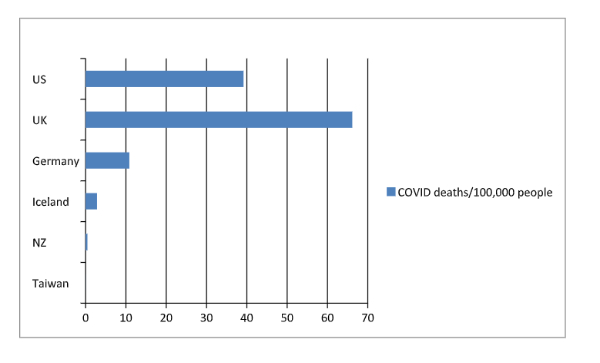
The numbers speak for themselves. The countries with the low COVID deaths are women led.
These women light the path.
1. Jacinda Ardern, Prime Minister of New Zealand
Jacinda Ardern was born in 1980 and was raised in a Mormon family. She eventually left the Mormon Church because she could not reconcile the church’s position on gayness. Ardern is one of the world’s youngest leaders but quickly rising stars.
She gained world attention in March 2019 after fifty-one people were shot and forty injured at two mosques in Christchurch. The photo of Ardern in hijab embracing a grieving Muslim woman went viral.
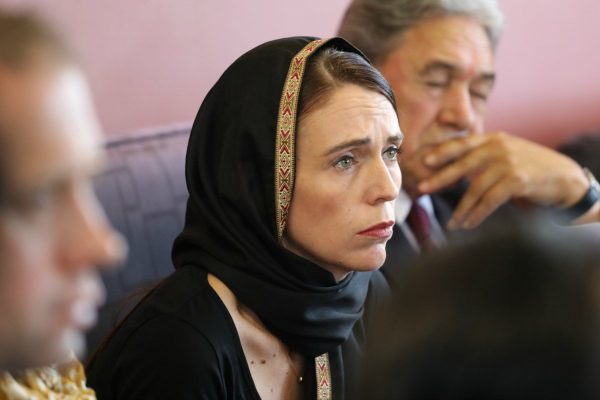
Within ten days, Ardern took decisive action. New Zealand banned all semi-automatic weapons and assault rifles. People around the world took note of both her compassion – her sense of shared humanity – and her no-nonsense firmness.
Ardern has been just as effective with the COVID crisis. She is adored and hailed as a communicator for getting on Facebook Live, apologizing for her informal attire saying she had been running after her toddler, to explain to New Zealanders why she was instituting a full lockdown early on in the crisis and what they must do. Her message was clear: “I care; by doing this we can save lives”.
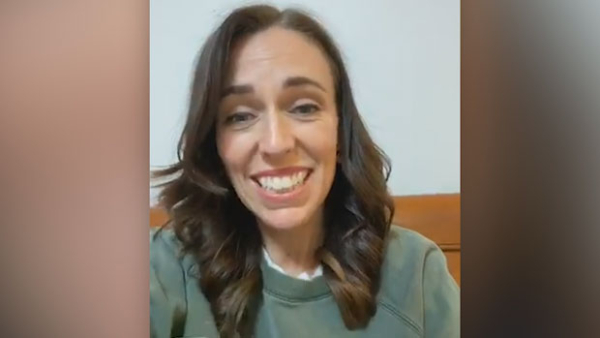
New Zealand, a country of five million, has had 1,528 infected with COVID, only 22 deaths and 1,484 have recovered. They have been able to lift their lockdown and re-open businesses with social distancing but have not opened their borders.
This is what I call “a people centered government”: a government which can solve the crucial problems; a leader who truly cares, listens and inspires.
2. Angela Merkel, Germany
Angela Merkel, born in 1954, has her doctorate in quantum chemistry. People point to her background in science to explain how logically she tackles problems, how she leads with a steady hand, whether it is the EU bailing out Greece or looking at the science essential in solving the coronavirus crisis.
Merkel shifted her career from scientist to politics after the fall of the Berlin Wall. She has been the Chancellor of Germany since 2005 and has served as the leader of the Christian Democratic Union (CDU) from 2000 to 2018. She is widely seen as the de facto leader of the European Union and the “Free World”.
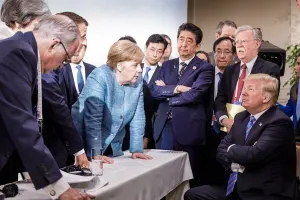
credit: Jesco Denzel/German Federal Government via AP
Is this what it means to be leader of the “free world”?
Like Jacinda Ardern, Merkel has courage: on August 31, 2015, Merkel declared “wir schaffen das” (we can do this) – we can take in Syrian refugees when other European countries were lining their borders with rolls of barbed wire. In 2015 and 2016, Germany welcomed almost a million Syrian refugees.
Like Ardern, compassion was at the center of her decision. “It was an extraordinary situation and I made my decision based on what I thought was right from a political and humanitarian standpoint,” she told the Welt am Sonntag. “I’d make all the important decisions of 2015 the same way again.”
Her steady hand and scientific thinking have served her well in the COVID (SARS-CoV-2) crisis. Her deliberate probing of information and her cautious consultation with experts are central to how Merkel operates. No grand standing; no nonsense. Over three decades of steady leadership Merkel has earned the trust of the German people. In the COVID crisis, they trust her to tell them the truth about what they face and what they must do. She has inspired her people and has led them through the crisis.
3. Tsai Ing-wen, President of the Republic of China – Taiwan
Tsai Ing-wen is Taiwan’s first female president; with a law degree from both National Taiwan University and Cornell University and a doctorate degree from the London School of Economics and Political Science. Born in 1956, Tsai Ing-wen is the youngest of eleven children.
Her first term in office, 2016 to 2020, she took some courageous positions: green energy (she was then accused of causing an electricity shortage) and Taiwan was the first Asian government to support gay marriage.
Her most courageous positon, though, won her a landslide re-election in 2020: when China was tightening down on pro-democracy demonstrations in Hong Kong and Taiwan wondered if China would crush Taiwan’s democracy, Tsai Ing-wen declared, “I stand with democracy…and I stand with freedom.” Like Merkel, Tsai Ing-wen stood up to authoritarian leaders’ bullying.
Like Ardern and Merkel, Tsai Ing-wen has ushered her country through the COVID crisis. Tsai Ing-wen excels at the problem solving aspect of leadership. To fight the virus, Tsai Ing-wen launched the Central Epidemic Command Center to handle prevention measures. She is a conscientious, list-making leader like Hillary Clinton who loved drafting policy proposals or Elizabeth Warren who has a plan for everything. Tsai Ing-wen introduced 124 (!) measures to prevent the spread of the coronavirus. She listened to her vice-president who is an epidemiologist.
Taiwan, so close to China, the center of the pandemic, closed its borders. Taiwan was able to keep its economy open because they were so disciplined about taking temperatures and providing hand sanitizer at the door of business establishments. Having learned from the 2003 SARS outbreak, they instituted contact tracing and mobile SIM-tracking to identify and ensure those in quarantine were actually abiding by the rules. Their diligence has paid off: only 443 cases; and 7 deaths. Explains Tsai Ing-wen, “This success is no coincidence. A combination of efforts by medical professionals, government, private sector and society at large have armored our country’s defenses.”
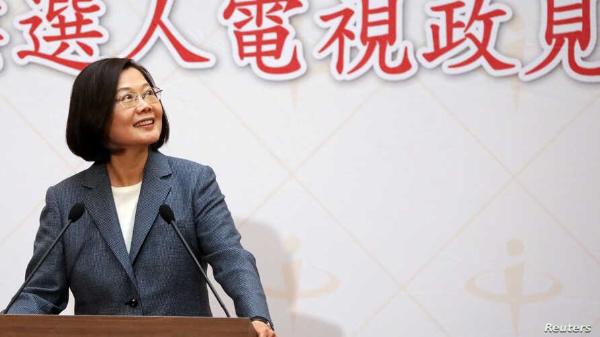
4. Katrín Jakobsdóttir, Prime Minister of Iceland
To be briefer here: Iceland, led by 44 year old Katrín Jakobsdóttir, has also earned attention for its extremely low COVID infection and death rates. Iceland’s secret to success is testing, tracing and quarantine. Jacobsdottir attributes their near elimination of the virus to their preparation – “In January, we knew the virus was coming” – and the close collaboration of public health officials and Icelandic biotech firm, deCODE Genetics. They test people who do not have symptoms.
Iceland never imposed a lockdown. Hardly anyone wears a mask. This is not to say that we should not be doing these things. What Iceland demonstrates is that the way you prevent an epidemic is pre-emptive action; you catch it before it spreads. It is again a woman, who has cared enough about her people, to beat the coronavirus.
Conclusion
When I saw that photo of Jacinda Ardern’s heartfelt embrace of the grieving Muslim woman, it touched a longing. I want such a leader! Once I put my finger on that longing, I knew it is something that I must help create. I now knew where to aim my arrow.
When democracy itself is under attack, it is heartening to see the emergence of “people centered governments” where people matter, where their voices are heard and their needs heeded.
When I am asking God, “How will we ever get through this extremely challenging time?” I am grateful that there are women who are showing us what a people centered leader is: one who can solve the problem; who cares, inspires, listens, has courage and collaborates. I have this dream that we build a world in which everyone thrives. These remarkable and effective women share this vision so my confidence is renewed that we will realize this dream.
Appendix:
Fascinating to see John Hopkins University data on all countries of the world:
https://coronavirus.jhu.edu/data/mortality
Belgium has extremely high COVID death rates and Belgium is women led. So does this shoot down my comments that women led countries often are more people-centered? This controversy about Belgium has been written about widely. Belgian officials say they are counting in a way that no other country in the world is currently doing: counting deaths in hospitals and care homes, but including deaths in care homes that are suspected, not confirmed, as Covid-19 cases.
This article was written in late June/ early July 2020 by Ann McLaughlin.







